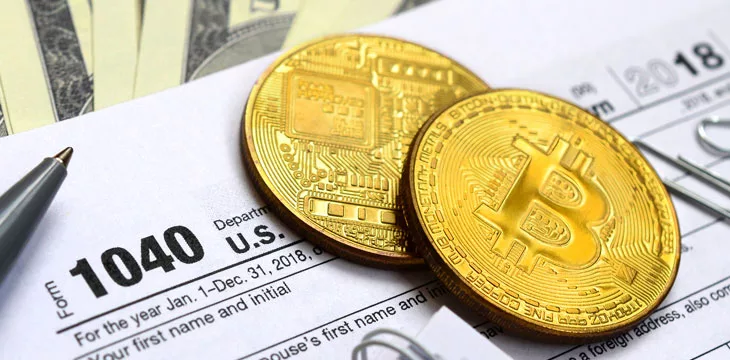|
Getting your Trinity Audio player ready...
|
Seven U.S. senators are urging the Treasury Department and Internal Revenue Service (IRS) to move faster on implementing digital asset tax reporting requirements agreed back in August, warning that waiting until 2026 to enact the rules would lead to $50 billion in lost annual tax revenue.
The rules would oblige ‘digital asset middlemen,’ including brokers, trading platforms, payment processors, and certain wallet providers, to report gross proceeds for all digital asset sales and exchanges from January 1, 2025. Brokers must also report information on gains and losses from January 1, 2026.
The call came from a letter dated October 10 and bearing the name of seven senators, including Bernie Sanders (I-Vt.), Elizabeth Warren (D-Mass.), Richard Blumenthal (D-Conn.), Angus King Jr. (I-Maine), Gary Peters (D-Mich.), Sheldon Whitehouse (D-R.I.), and Brian Schatz (D-Hawaii).
The senators wrote that while they understand and appreciate the rules proposed by the IRS last August, the current plan for them to go into force in 2026 was an unacceptable and ‘self-inflicted’ delay.
“Although we are pleased that the Administration has proposed a strong rule that would help close the massive crypto tax gap, we are alarmed by the self-inflicted two-year delay for the rule’s implementation, which would contravene the requirements of the Infrastructure Investment and Jobs Act, disadvantage law-abiding Americans, and cause the federal government to lose out on billions of dollars in tax revenue. We urge your agencies to limit this troubling delay and implement the final rule as swiftly as possible, while maintaining the rule’s substance in the face of industry attacks.”
The Infrastructure Investment and Jobs Act referred to in the letter directed that new reporting requirements for digital assets should be applied to all tax returns starting in 2024. According to the senators, research suggests that digital asset tax evaders create a $50 billion annual loss of revenue for the IRS and that further research has suggested even that estimation is too small.
Sen. Warren released a statement after the rules were initially published, saying that the proposed regulations did not go far enough to prevent ‘wealthy tax cheats’ from hiding income in digital assets.
The letter is also notable because it reflects an ongoing trend of government and regulators explicitly calling out the industry’s PR blitz on the subject of digital asset regulation, which, based on internal communications leaked in various investigations and cases against digital asset firms, is entirely disingenuous. This is cited explicitly as a reason that a delay in the rule is unacceptable:
“Moreover, any delay would give crypto lobbyists even more opportunity to undermine the Administration’s efforts to impose basic reporting requirements on the nearly unregulated crypto sector, at a time when the industry is already pushing to repeal the recently enacted reporting requirements. The time to act is now.”
True to form, following the announcement of the new rules in August, digital asset interest groups complained that the rules were over-broad and leave some industry participants with no way to comply, including the Crypto Council for Innovation and the Blockchain Association. The latter group has lobbied for a bill that would repeal the reporting requirements.
The senators’ letter is also true to form, especially as far as Sen. Warren is concerned. She has regularly complained of the harms caused by gaps in digital asset rules, raising concerns about national security, sanctions evasion, money laundering, and potential spillover to the regular financial system in the event of a crash.
As of now, the rules are set to come into effect in the staggered approach envisioned by the IRS: gross proceeds reporting from January 2024, and complete profit/loss reporting from January 2026.
Watch Brendan Lee: What really happens when you make a Bitcoin payment

 09-09-2025
09-09-2025 





